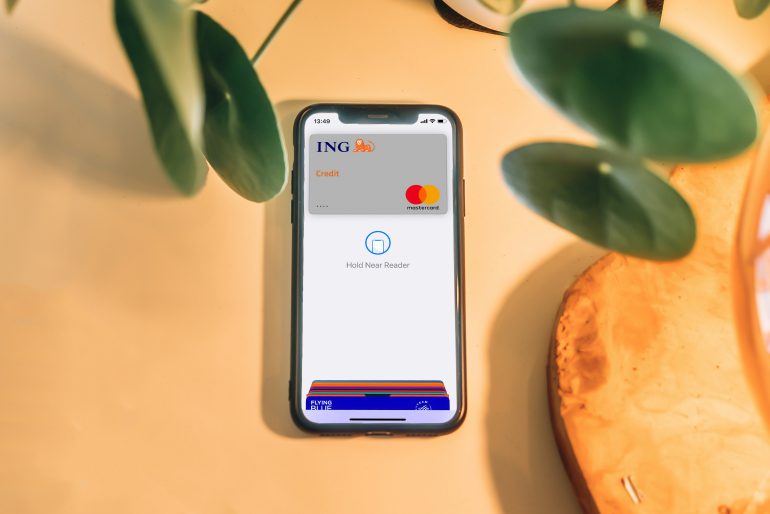Moving to the Netherlands brings lots of opportunities, but can also come with bureaucratic difficultiesand confusion. Especially if you’re trying to get settled and want to open a bank account. For example: you need a BSN to open a bank account, but you can’t get a BSN without an address, yet you need a bank account to pay your rent! Luckily, there are a few ways to take care of this. In this article, we’ll explain how it works and what you need to know about Dutch banks.
No BSN? No problem (yet!)
There’s multiple Dutch banks that will let you open an account without a BSN. However, they all share the same rule: you have 90 days to arrange a BSN. This means you have some time to figure it out, but a BSN is definitely still a requirement.
Some examples are:
- ING: you can open a regular ING current account through the app, even with just your passport or residence permit.
- bunq: fully digital, English‑friendly, and fast; bunq lets you open an account from anywhere, even before you move.
- ABN AMRO: this traditional bank offers expat‑friendly onboarding through their app. You might need a foreign Tax Identification Number (TIN) or Fiscal ID to start, plus a valid ID and proof of Dutch address.
With one of these accounts, you’ll be able to pay rent, set up utilities, receive your salary, and even buy your first SIM card, all before completing your BSN registration. Don’t forget to arrange your BSN quickly though: your account will be blocked if you do not inform them of your BSN within their 90-day window.
Good to know: there is another way to open a bank account before getting your BSN. You can sign up through Neobanks (fully digital) in another European country. N26 en Openbank are popular options. They’ll let you join with no need for a BSN (ever!), and the account can be used in The Netherlands. There’s also a downside: they’ll give you a foreign IBAN, and some Dutch institutions (health insurance, phone providers) might ask for a local one.
What to expect from Dutch banking products
There’s multiple different banking products available for you. We’ll highlight the most popular ones, and tell you about the Dutch terms for these products, so you know what to look for.
Current (everyday) accounts
Known as ‘betaalrekening’, these are your all-rounders: IBAN, debit (Maestro) card, internet/mobile banking, and compatibility with iDEAL, the go‑to online payment system for many Dutch services and stores.
Savings accounts
A ‘spaarrekening’ is often separate from a current account, although some banks do include a separate savings account automatically. Rates are modest at large traditional banks, with interest averaging around 2,2% in The Netherlands.
Student account
Some banks offer accounts specifically for students: a ‘studentenrekening’. These products are often cheaper than regular accounts (or even free!), and are often reserved for a certain age group (18-25 years old).
Borrowing money: what you need to know
Do you want to borrow money (in Dutch: geld lenen) in The Netherlands? Getting a loan might work very differently from your home country. The most important things to note are:
No option without a BSN
Want to apply for a Dutch mortgage or open a credit card account with a Dutch bank? It won’t be possible unless you have a BSN. The only workaround to get a BSN faster would be an RNI (more on that below).
Strict regulation and transparency
Dutch banks operate under tight supervision. Loan terms (like APR) must be crystal clear, and many borrowers use online tools to compare costs effortlessly. Lenders demand proof of income, stable job, or permanent residency: conditions you may not meet until your BSN and registration are complete.
Credit checks are central
Lenders will check your credit history via the Bureau Krediet Registratie (BKR). If you’re new to the country, this may be a stumbling block unless you have prior, verifiable financial data. Make sure you collect as much information from your previous credit scores as possible.
Unique circumstances: the RNI route
If you’re not registering as a resident but still need a bank account, you might be able to register under the RNI (Registratie Niet-Ingezetenen). This gives you a BSN instantly (long before municipal registration) and speeds up access to full financial services. But don’t think you’ve found the perfect solution: it is reserved for people staying in The Netherlands for 4 months or less. If you’re planning to stay longer, this is not a viable option.
Getting smart about your finances
Moving to The Netherlands is no easy feat. There’s plenty of bureaucracy to deal with, especially if you’re still waiting for your BSN. Are you looking for a way to open a bank account? Check the Dutch banks or Neobanks we mentioned before: they might be able to help you take the first step to figuring it all out!
